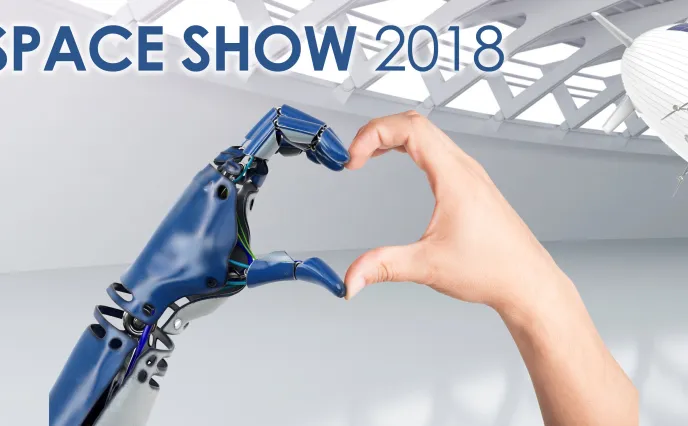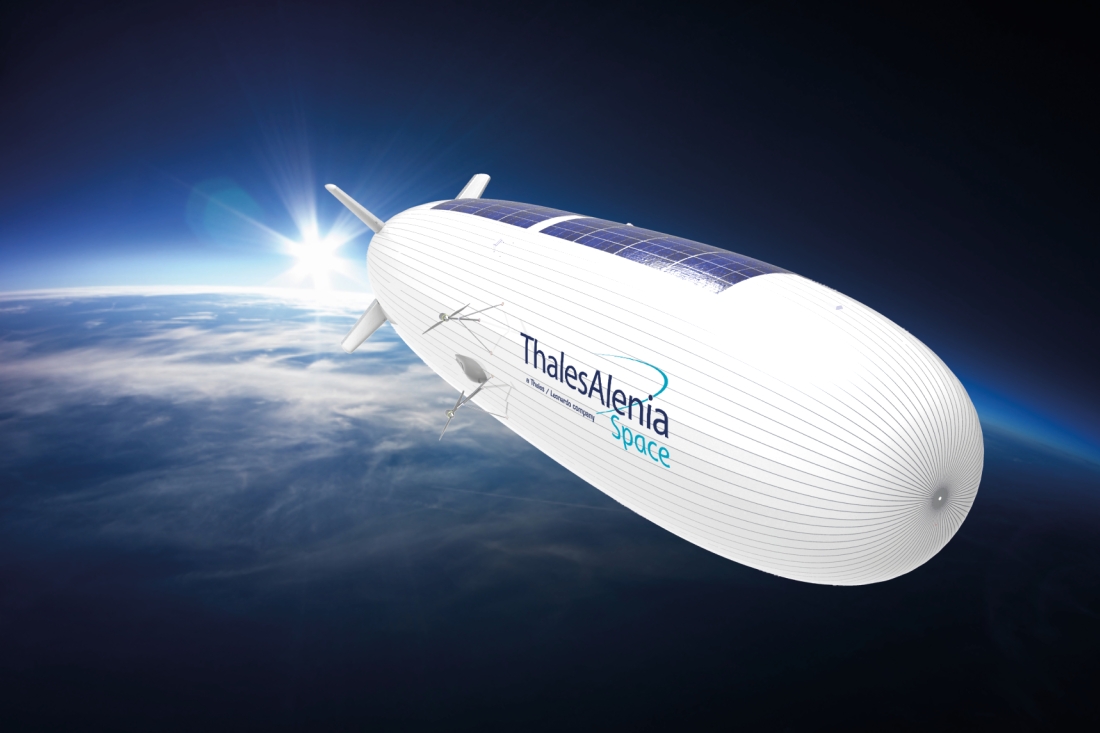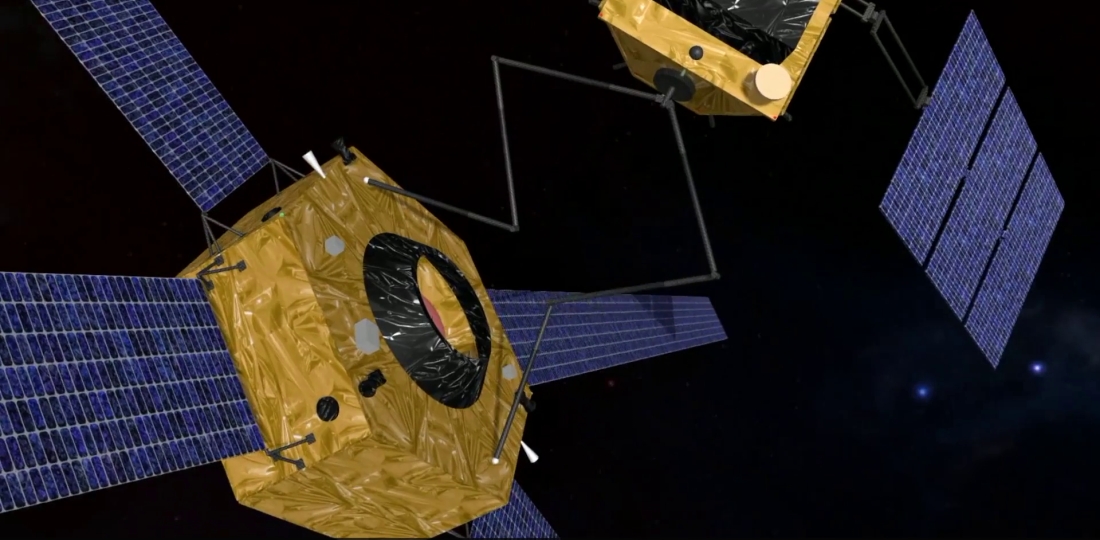Focus on innovation ahead of Toulouse Space Show

Thales Alenia Space will be at the Toulouse Space Show, June 26–28. The organizers are expecting some 3,000 visitors, 350 exhibitors and 60 pitches by startups. All the major players from across the space sector will be here. This year’s guest of honor is China. The event has a distinctly international flavor, with more than 50 countries represented. The two-day program will cover a broad range of topics, focusing especially on the NewSpace economy and latest technologies.
An inexorable paradigm shift has taken place in the last four to five years and the space market has taken new directions, with a whole host of mega-constellation and nanosatellite projects, for example. The question is how these latest technologies will be incorporated into the space industry and its production processes.
Ahead of the Toulouse Space Show, here are a few examples of how Thales Alenia Space’s game-changing activities and programs are leading the way in the rapidly evolving space market.
Driving the digital transformation

Additive manufacturing, virtual and augmented reality, big data, artificial intelligence, robotics, cobotics and digital twins are an integral part of Thales Alenia Space’s broader strategic focus on innovation and the digital transformation, which we call the Factory of the Future. In today’s hypercompetitive satellite market, we must be able to produce “more”, “faster” and “cheaper”. More than ever, new technologies are a powerful lever, enabling us to build more satellites in a fast-moving industrial environment. The Factory of the Future is all about introducing competitive state-of-the-art technologies into our production facilities, in line with the company’s digital transformation. The word “innovation” is often overused, but it’s what we’re all about at Thales Alenia Space!
BlackSky – Earth observing satellite constellations are back!

Just like the telecoms market, Earth observation is undergoing a major transformation. One striking example is BlackSky — a planned constellation of 60 Earth observing satellites, which will provide users with geospatial services at the forefront of innovation. To deliver this capability, Thales Alenia Space and Seattle-based company Spaceflight Industries have formed a 50-50 joint venture called LeoStella LLC.
“This new company, which combines the high-tech design of the platform developed by Spaceflight Industries with Thales Alenia Space’s proven expertise in constellations, will offer production capacity beyond the needs of BlackSky,” said Jean-Loïc Galle, CEO of Thales Alenia Space, in March 2018. “Our partnership reflects Thales Alenia Space’s NewSpace transformation strategy, positioning us as a major manufacturer of observation satellite constellations with short revisit times in Europe and the United States.”
BlackSky and Telespazio had also signed a joint cooperation and marketing agreement to distribute each other’s products and services as well as co-develop a unique set of applications and services. Under this accord, Telespazio will sell BlackSky products and services in Europe to key government customers.
Is it a plane? Is it a drone or satellite? No, it’s Stratobus

Ever since it was first unveiled on the web, Stratobus™ has drawn admiration from space geeks and technology buffs alike. With a demonstration flight scheduled in 2021, Stratobus™ is packed with innovations. A perfect fit with conventional satellite systems, this autonomous multimission stratospheric airship is the missing link between UAVs and satellites. Chiefly intended for local missions, it operates at an altitude of 20 kilometers (above the jet stream and air traffic) and is designed for a wide range of civil and military regional applications: telecommunications, navigation, observation, etc. Marking a real break with existing systems — for example, it doesn’t require an expensive launch vehicle — Stratobus™ could provide a permanent surveillance solution over a predefined regional coverage zone to meet the needs of security and defense organizations.
Satellites and autonomous mobility
There’s an increasing focus in the media on mobility and how people will travel in the future, with regular features on driverless car concepts and airliners with computer-mediated controls.
Today, satellites already play an important role in air navigation. With their vast coverage areas, they overcome the problems usually associated with geographic distance and weather conditions. Wherever you are and whatever the weather, satellites give you a robust, dependable signal. They also have high levels of what we call “redundancy” — so that services are maintained even if various components fail, giving users real peace of mind. Satellites will be a prerequisite for effective autonomous mobility on a global scale and are especially useful in remote and sensitive geographic areas, such as deserts, oceans and unstable political borders.
For example, constellations of small satellites can gather huge amounts of information for better monitoring the status of cars, aircraft and other vehicles, as well as providing the necessary links for connecting people and devices. Here again, satellites have a vital role to play in providing useful information for people on the ground, making our daily lives better, easier and safer.
Space Servicers

"Once a satellite is launched, there is no after-sales service possible in orbit"! This sentence will probably no longer be relevant in the near future. You wonder why... We call them Space Servicers! As their name suggests, these space vehicles are intended for in-orbit services. True Swiss Army knives, they will be able to carry out a wide range of operations in orbit, including controlled re-entry of space debris, robotic manipulation, the extension of a satellite's operational life, in-orbit re-fuelling, inspection, etc. With these new vehicles, we will witness a real paradigm shift from a “stationary space” to a space that is on the contrary dynamic. Space Servicers, of which Thales Alenia Space is one of the most advanced spearheads, will bring a new approach to access to space. And if we ever start building lunar bases, Space Servicers could be hugely valuable, especially for transporting the various components to be assembled.
Copyrights:
Image 1: ©Thales Alenia Space/Briot
Digital Transformation: ©Thales Alenia Space/Briot/Creative Spirit
BlackSky: ©SpaceFlight Industries
Stratobus: ©Thales Alenia Space

